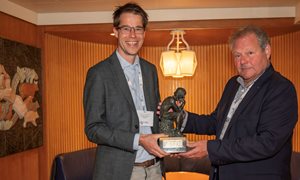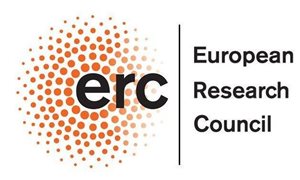12 August 2020
The research was done on TP53, a gene that often mutates in several types of cancer. The researchers examined whether the gene mutates zero, once or twice in a rare form of blood cancer, myelodysplastic syndrome (MDS), a precursor of acute myeloid leukemia. A study of more than 4,400 patients revealed the worse prognosis for a double mutation.
Co-researcher Arjan van de Loosdrecht, professor of Hematology at Amsterdam UMC, adds: "These findings are immediately clinically relevant for risk assessment and treatment for people with this type of blood cancer. People who do not have a double mutation do not necessarily have a very poor prognosis as we previously assumed. If there is a double mutation in TP53, physicians should consider proposing an intensive treatment plan, given the poorer prognosis, including a donor stem cell transplant".
For the entire study see Nature Medicine and the press release of Memorial Sloan Kentering.

The research was done on TP53, a gene that often mutates in several types of cancer. The researchers examined whether the gene mutates zero, once or twice in a rare form of blood cancer, myelodysplastic syndrome (MDS), a precursor of acute myeloid leukemia. A study of more than 4,400 patients revealed the worse prognosis for a double mutation.
The TP53 gene and treatment options
Joop Jansen, theme Cancer development and immune defence, explains: "This research shows that the double TP53 mutation is even the most important variable for predicting the course of the disease. Therefore, the impact of zero, one or two mutations in the TP53 gene should also be investigated for other types of cancer. For TP53 mutations are common in other types of cancer." In many types of cancer, mutations in TP53 are associated with much worse results, such as recurrence of the disease and shorter survival.Co-researcher Arjan van de Loosdrecht, professor of Hematology at Amsterdam UMC, adds: "These findings are immediately clinically relevant for risk assessment and treatment for people with this type of blood cancer. People who do not have a double mutation do not necessarily have a very poor prognosis as we previously assumed. If there is a double mutation in TP53, physicians should consider proposing an intensive treatment plan, given the poorer prognosis, including a donor stem cell transplant".
For the entire study see Nature Medicine and the press release of Memorial Sloan Kentering.
Related news items

T cell immunity is directed by tetraspanin CD53
5 July 2022 T cells are immune cells that are key for the defense against pathogens and cancer. T cells depend on the membrane protein CD45 to initiate T cell receptor signaling, but how CD45 is controlled at the molecular level is poorly understood. go to page
A single protein complex balances the very first lineage decision of cells in human: towards foetus or placenta
21 June 2022 The international group of researchers spearheaded by Dick Zijlmans and Hendrik Marks together with colleagues from KU Leuven, examined which proteins are associated with the chromatin and how this affects gene transcription. go to page
Dutch Society of Clinical Chemistry Science & Innovation Award for the team of Hans Jacobs
14 June 2022 The team of Hans Jacobs pioneers on the development of personalized diagnostics to measure minimal residual disease in patients with multiple myeloma. go to page
European grants for groundbreaking Radboudumc research Professors Roshan Cools and Peter Friedl receive ERC Advanced Grant
26 April 2022The European Research Council (ERC) is awarding grants to Roshan Cools and Peter Friedl, both professors at Radboudumc. While Cools will investigate how brains control behaviour in (stressful) situations, Friedl will work on developing a new cancer therapy.
go to page
Saponin-based adjuvant-induced dendritic cell cross-presentation is dependent on PERK activation published in Cellular and Molecular Life Sciences
20 April 2022 Lisa Huis in ‘t Veld, Nataschja Ho and colleagues from the team of Gosse Adema published in Cellular and Molecular Life Sciences that Saponin-based adjuvant-induced dendritic cell cross-presentation is dependent on PERK activation. go to page
Rubicon grants awarded to three RIMLS researchers
19 April 2022Three researchers have received Rubicon funding from NWO/ZonMw. This will enable Elke Muntjewerff, Laura de Vries and Laurens van de Wiel to do research at a foreign research institute for the next two years.
go to page